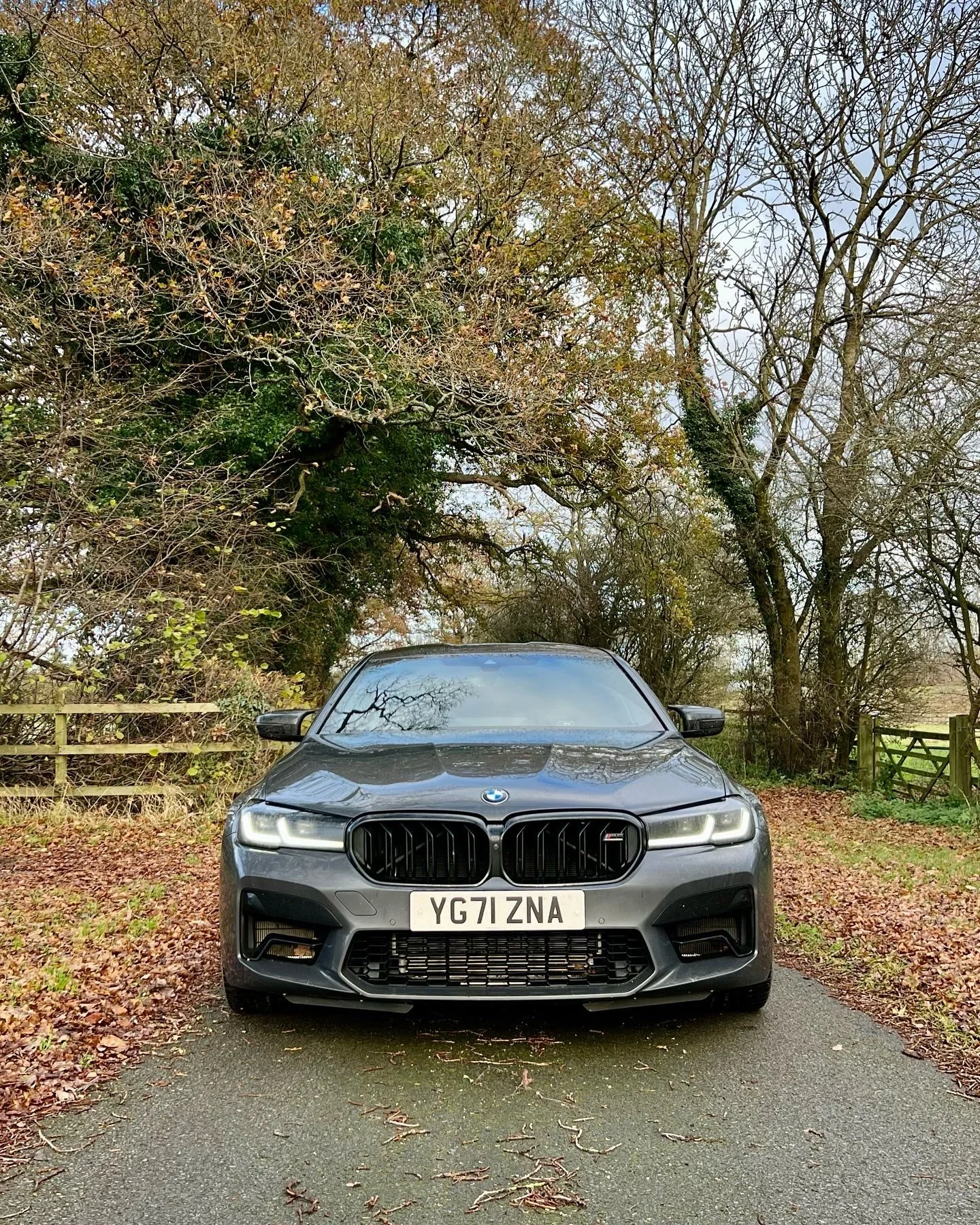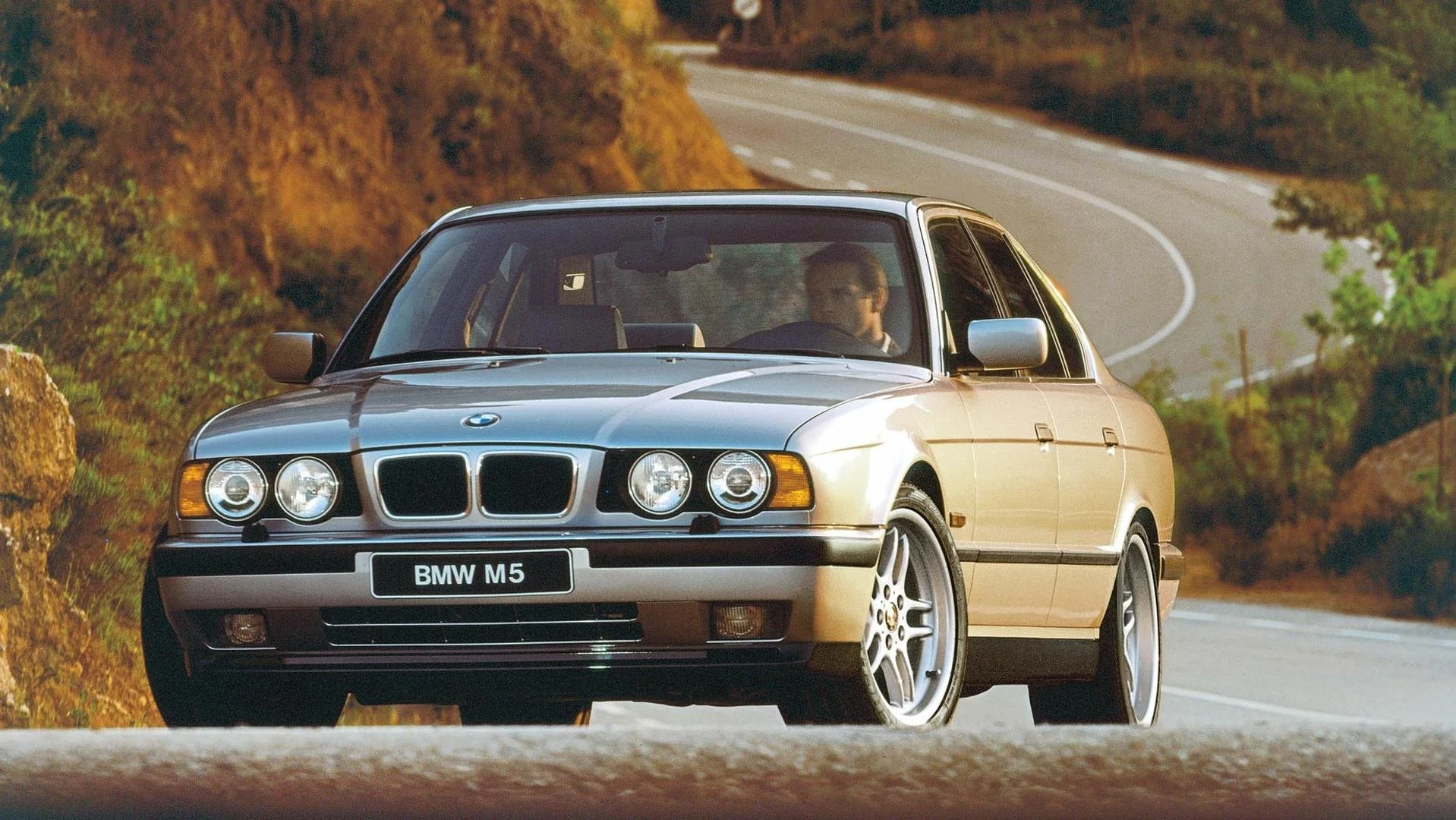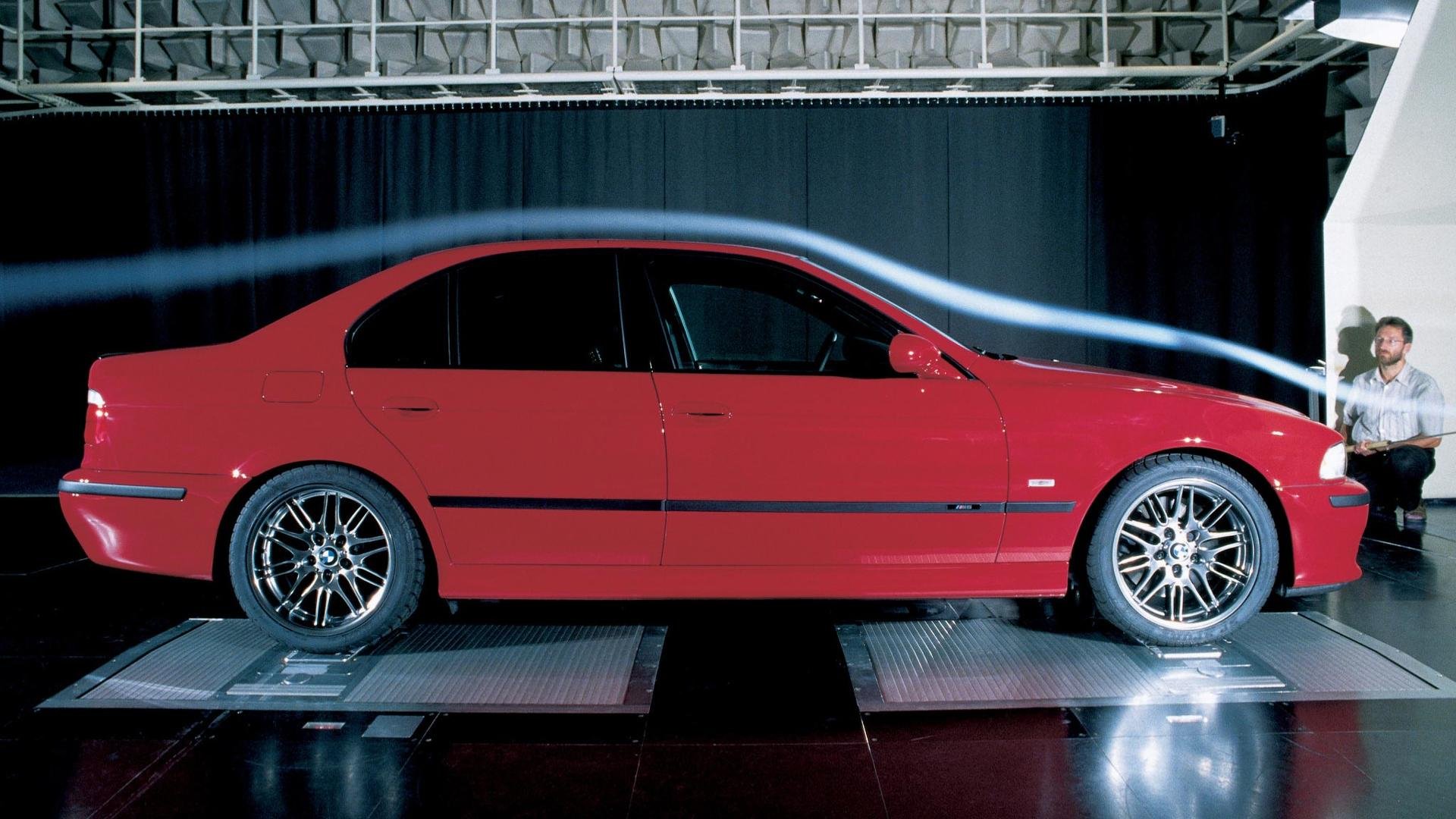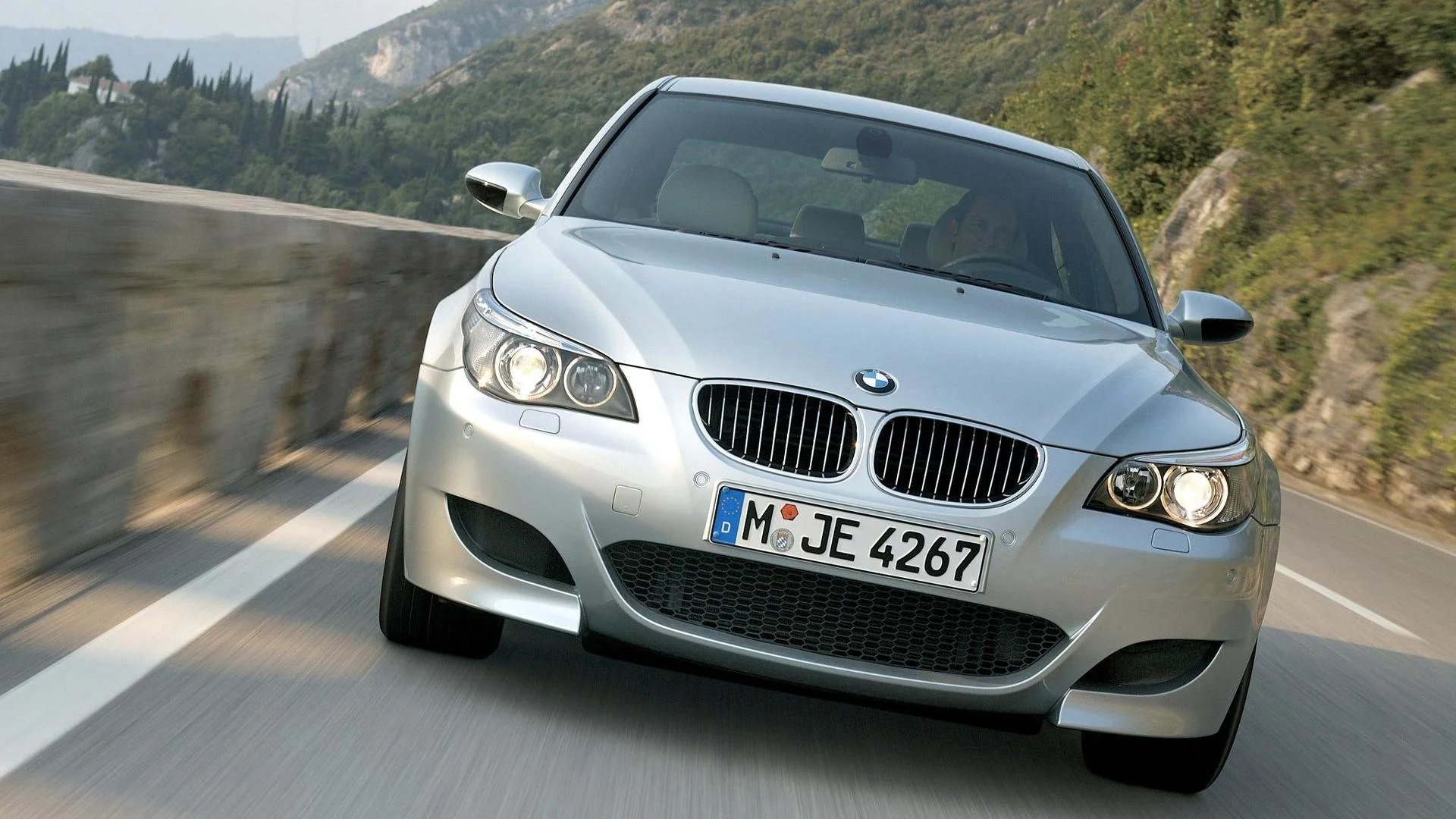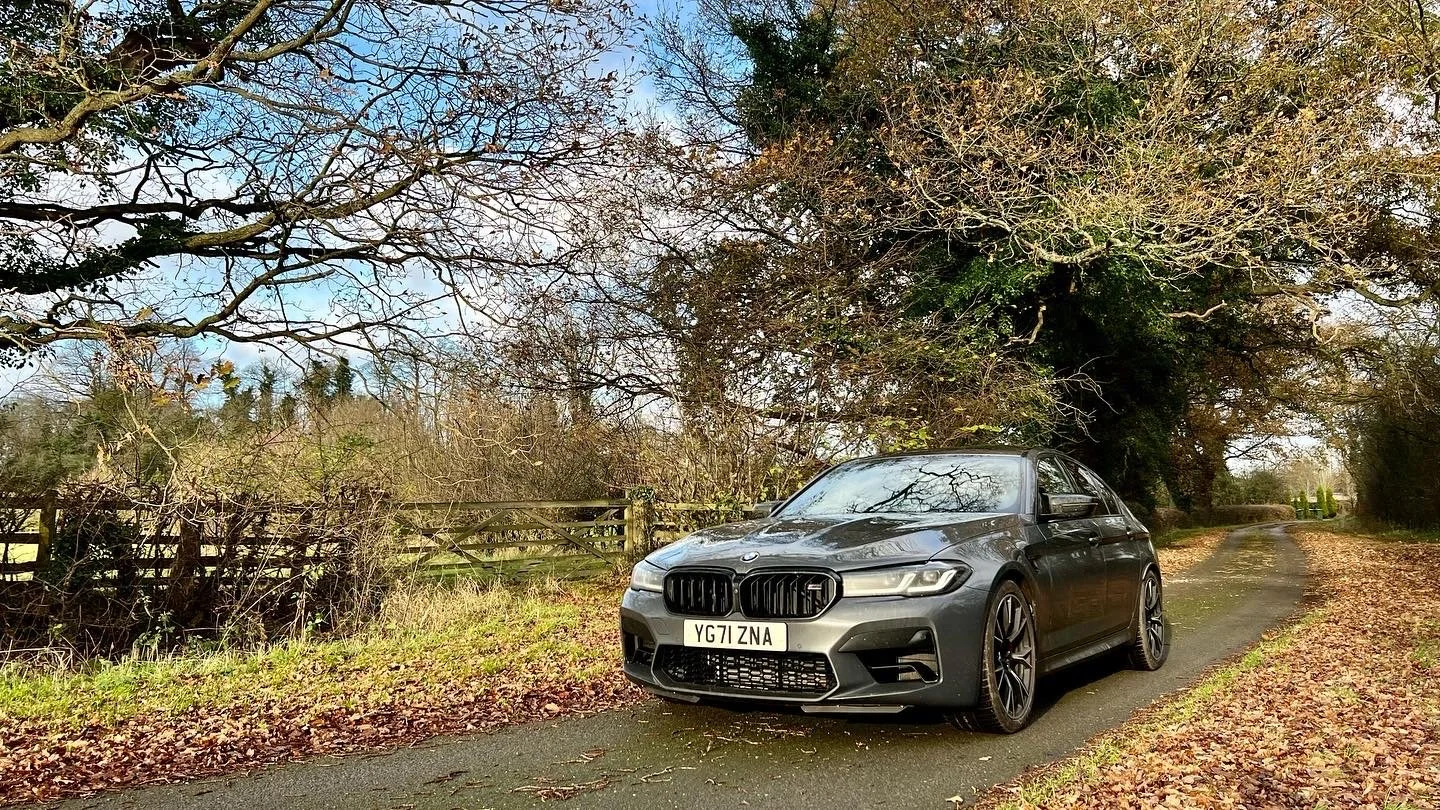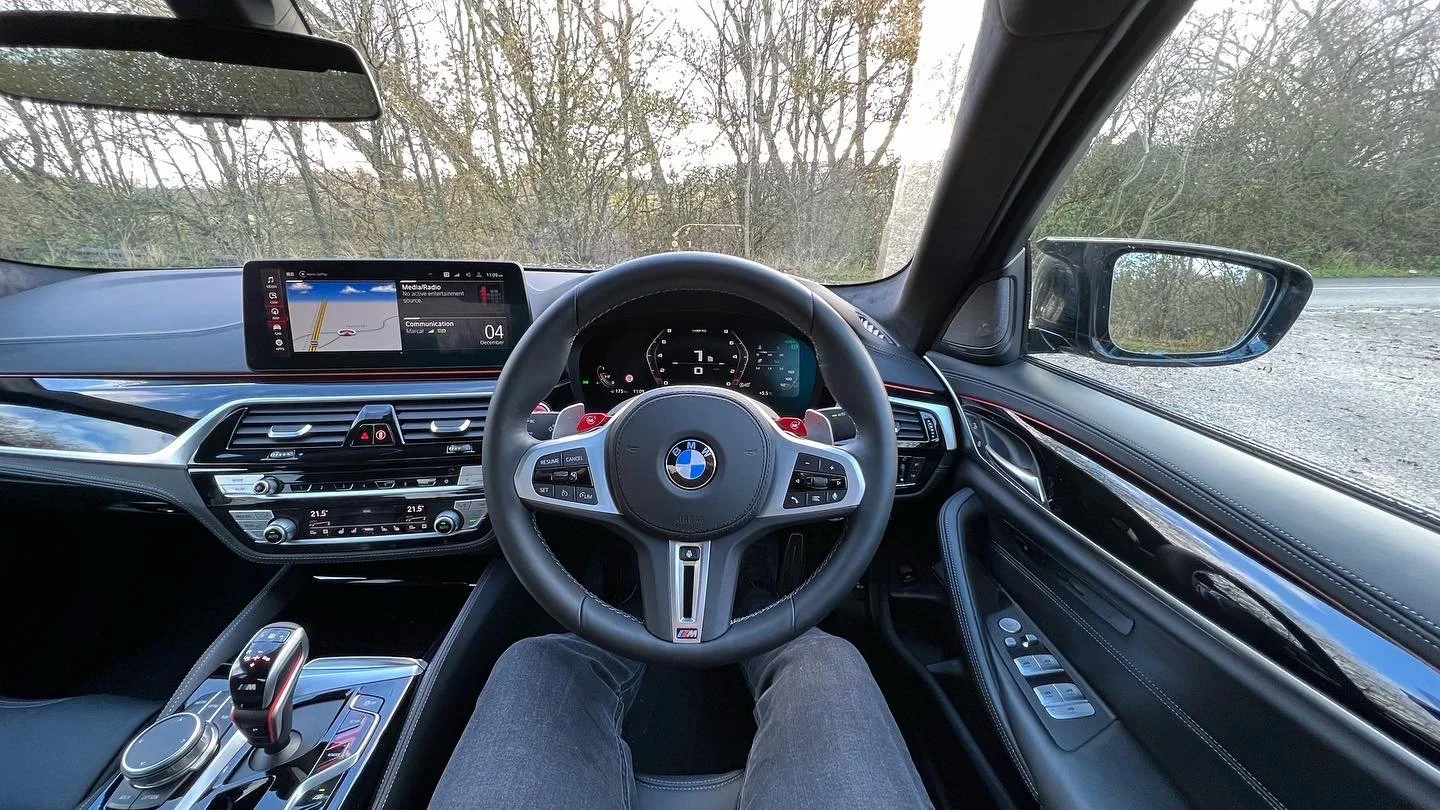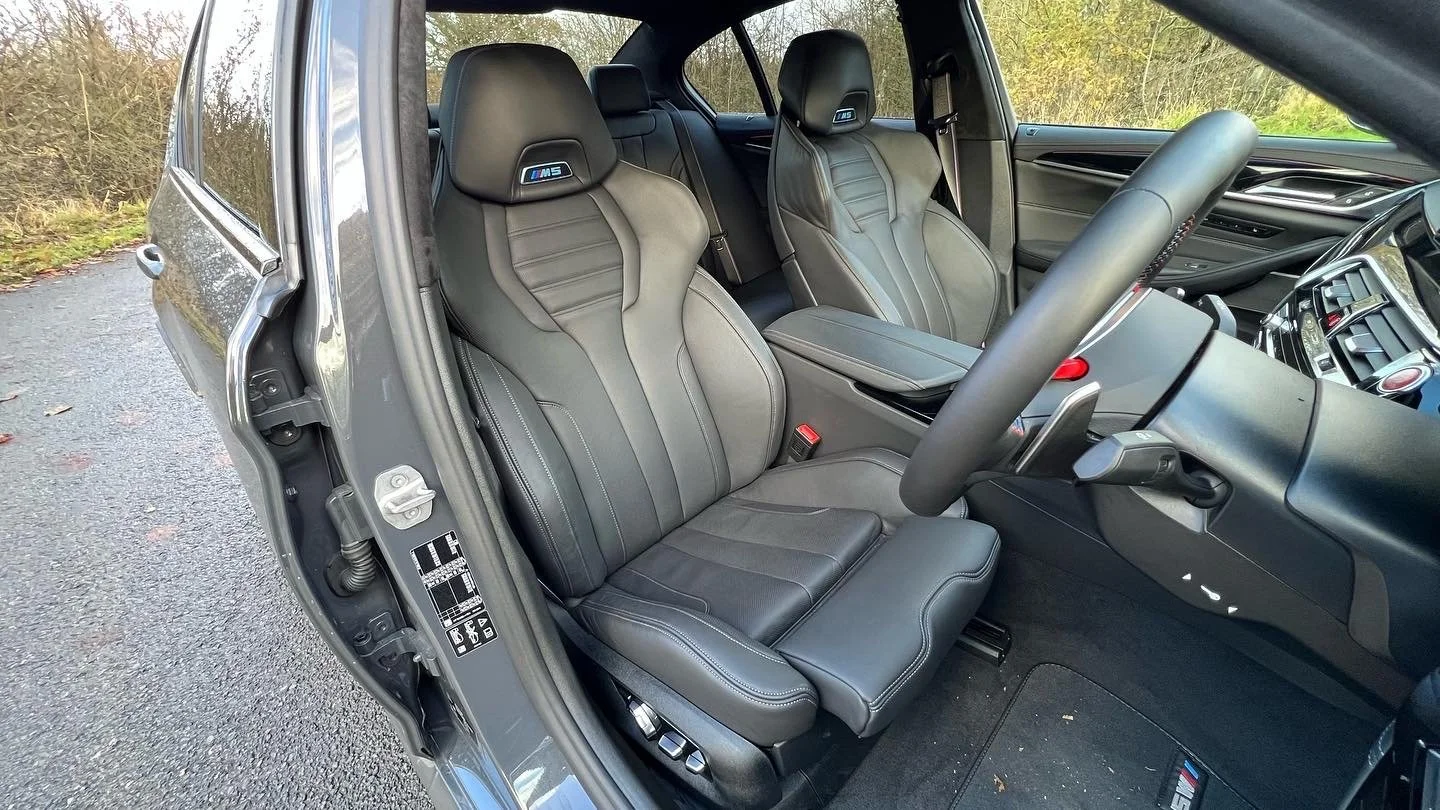Review | BMW (F90) M5 Competition - The Ultimate Everything?
It can be dangerously easy to get excited about a new car—especially one with a history of being nothing short of fantastic. Our friends at Partridge BMW recently offered an F90 M5 Competition for a week, and following my experience with the M4, I was a little apprehensive about how it would make me feel.
Let’s begin with a little recap of the M5 up to now…
Since the very first M5 came along in 1984, each model has been, in a word, 'fantastic'. The first 'E28' M5 was hand-built at BMW Motorsport's plant in Preussenstrasse, Germany. The BMW engineers retained much of the styling of BMW's big family car but dropped in a hand-built 3.5 L straight-six engine from their supercar of the time - the now iconic BMW M1. This feat of engineering unwittingly broke the mould for fast cars of the era. There wasn't much in the way of fast four-doors back then, and the concept of what was essentially a 'big' (for its time) car having 270 brake horsepower (bhp) was revolutionary.
With the global success of the E28, with the next iteration of the 5 series came the next M5, the E34 M5. Once again, it was a car that looked like BMW's big family car... only this time it had even more power.
The motorsport engineers once again worked their magic with another hand-built iconic straight-six 3.6 L engine and this time managed to squeeze out 311 bhp - in 1988!
The late 1990s saw the introduction of what is regarded by many as one of the greatest drivers cars of all time; the E39 M5. In 1998 BMW unveiled their latest iteration of the M5, only this time it had a literal power plant under its bonnet, a 4.9 L naturally aspirated V8 producing just under 400 bhp. As per the traditions of the M5 to date, BMW's motorsport boffins had created a motorsport engine, paired it with a dynamic chassis and suspension set up and yet for the average onlooker, it was just another family car. There was simply no way the M5 could get bigger and better, surely?
In 2004 the worlds motoring press gasped collectively with the announcement of the E60 M5. With its revolutionary/questionable styling, it was one of the most significant talking points of the decade, but people weren't just talking about how it looked.
As of the mid-noughties, a BMW M5 suddenly had somehow gained a further 100 bhp and two more engine cylinders. The E60 - frequently referred to as 'the V10 M5' - set the world on fire with its screaming motorsport F1 derived V10 engine, a blatant disregard for MPG and a frankly hilarious 500 bhp.
The F10 M5 came next in 2011, and you probably won't be too surprised to learn that the power plant had been upgraded once more... only possibly not in the way you would imagine.
The golden era of the naturally aspirated V10 engine had passed, and its place was a V8 once more, only this time, it had turbos. This smaller 4.4. L engine 'downgrade' was a controversial move for the die-hard M fans but was widely accepted as a necessary evil. And whilst the engine was smaller in capacity and down on two cylinders, thanks to the turbos, it was, of course, more powerful with a punchy 567 bhp.
So here we are in the present day. The latest iteration of the M5, known as the F90, continues with the 4.4 L V8 turbocharged power plant only; you guessed it, with more power - loads more power. The latest (UK) entry-level M5 (confusingly named 'M5 Competition') has a frankly absurd 617 bhp straight out of the showroom.
Just allow yourself to process that for a moment, and I'll help - here is a collection of easily recognised fast cars; Porsche 911 Turbo S, Aston Martin DB11, Nissan GTR Nismo, Audi R8 V10+. These are all unquestionably; supercars. And yet, the F90 M5 - with its four doors, five seats, heated leather, premium sound system, soft close doors, massive boot, folding rear seats, lane assist, radar cruise control, ionic scented air conditioning, whole body massaging function, and more optional extras than most limousines has more power than all of those supercars - yes, really. I haven't mentioned the torque and acceleration figures yet, either. The latest M5 will accelerate from 0-62mph in three seconds, and it has a torque band comparable to a McLaren 720s - A bloody McLaren!! The geniuses at BMW have somehow made a 2000 kilo family car perform like a two-seater supercar with absolutely zero compromises to comfort, convenience or social awkwardness.
Now, I like a supercar. I'm always delighted to drive around in the likes of a 911 Turbo S or an Audi R8 V10+, but believe it or not, there are times when you want to blend into traffic and disappear - and in a supercar, that's not always very easy. In an M5, though, thanks to BMWs tradition of only subtle styling changes from the most conservative of 5 series models, you can do precisely that. Line up an M5 beside a 530d M sport, and chances are the average joe will be hard pushed to tell the difference. The M5 doesn't shout about its performance with vulgar power bulges and excessive haunched wheel arches; it simply fits in with the rest of the traffic.
After my slightly underwhelming experience with the M4 Competition* (a car that I was so excited to drive), I approached the F90 with trepidation. The M4 made me a little concerned that BMW M cars weren't very 'M' anymore. Motorsport divisions weren't making the engines, and manual gearboxes and DCT boxes were a thing of the past. Suddenly the flagship sports cars for BMW had the same gearbox you'd find in a 120d and a tuned-up version of an engine available in a 3 series designed to appeal to the fleet car market.
The M5 does have what is essentially a tuned up version of an engine you can find in other cars from the BMW range such as the X5 M. It has the ZF8 automatic gearbox too, but strangely, unlike in the M4, it's forgiven because it just seems to work. I was grumpy about the M3/4 models because I felt adding a ZF8 auto box and a remapped engine was detracting from the raw and visceral experience that an M3 or M4 should offer. But in the M5, because of the inherent need for it to also be a luxurious executive car, the engine and gearbox choices don't feel like compromises at all.
So is it really that good? In a word, yes. In tradition with all BMW M5s up to this point, the F90 is an actual drivers car. As seen in the M3/4 models, you have multiple customisable driver options to harden or soften the suspension and chassis feel, as well as settings for the throttle response, the power delivery and even the drivetrain. These changeable settings seemed unnecessary and confusing in the previously raw 'ultimate driving machine' of the M3/4. Still, again, because the M5 needs to be able to do it all, it's forgiven.
My personal sweet spot for driver settings was full engine power with the steering and suspension in the softest comfort settings. That paired with the gearbox in 'manual' mode on the sharpest shift setting created a very happy place for some spirited driving on local country roads. I didn't get a chance to really open up the car to its full potential, but the power was plenty (and prominent). Out of curiosity, I tried the car in it's full-bonkers 'full-fat M mode' with all settings at their sharpest and stiffest, but it was just too much for the UK roads. Even in comfort mode, the suspension is firm. In the stiff sporty mode, it was near-daft. In all driver modes, the F90 is a very forgiving car when driven spiritedly. It doesn't feel as 'on edge' as the M4 felt (for the better!), and at the risk of sounding whimsical, you can clearly feel the evolution of the M5 through its previous iterations.
The M5 as a product has always been fantastic at doing everything, and the F90 has followed suit perfectly. I loved knowing that I could entertain my inner 12-year old whilst 'hooliganing' along the local A-roads but also very much enjoyed the ability to settle into a long drive or morning commute without any compromise in either discipline.
The M5 Competition isn't cheap. With the big performance comes the big price tag. The Brands Hatch Grey M5 I had for the week was spec'd up to £102,625.00, and if you want the CS upgrade (with slightly more power and a tighter chassis), you'll need to find an additional £40,000 to add on top of that. Whilst it's not a cheap car, it is priced competitively with its peers; the E63 AMG Mercedes and the Audi RS6 are the easy comparatives and are both in the same price region. If you're paying by the month, you'll find that each of the finance divisions will offer a reasonably good incentive package with sizeable dealer contributions too.
If it were me and my money, though, I'd be badgering BMW finance for the deal because the F90 M5 is still 'the ultimate everything' car. There will be a new M5 along soon, and I'm genuinely struggling to imagine how it can get any better...but then I said something very similar about the E60 V10 M5 in the mid-noughties.
Well done, BMW. My faith in the M division has been restored to the extent that if I had the means, I'd put my money where my mouth is and buy one of these. It is, in a word, fantastic.
*Hang on, What was wrong with the M4?? (Read here)
Words by John Marcar
Photographs by John Marcar
Special thanks to Partridge BMW, Hampshire

